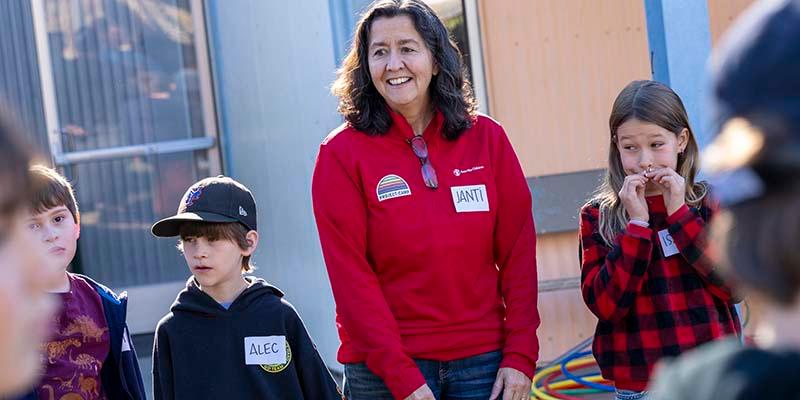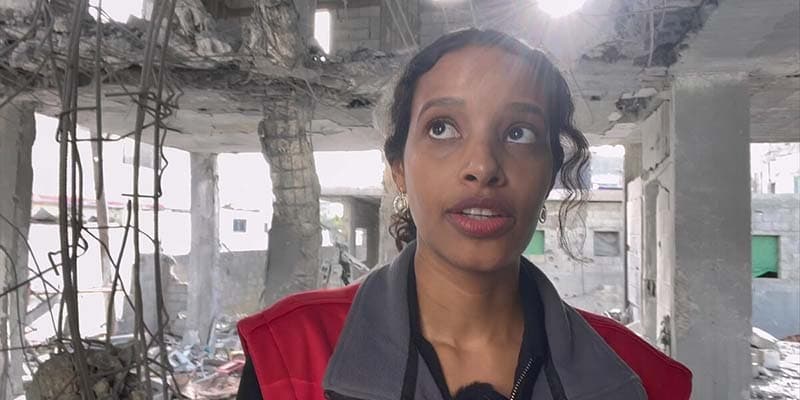
Photo credit: Bisan Owda/ Save the Children
This Ramadan in Gaza, There Will Be No Dates to Break the Fast
By Mohamad Alasmar, Save the Children’s Advocacy and Resource Mobilisation Director for Middle East, North Africa and Eastern Europe
Every year when the sun sets during Ramadan, Muslims break our fast with a date – just as the Prophet Mohammed did.
But this Ramadan in Gaza, where lack of food is forcing families to eat leaves and animal food to survive, there will be no dates to break the fast. Date harvesting, along with other food production, has been completely decimated. And as part of their restrictions on aid crossing into the Strip, Israeli authorities are reportedly classifying dates as “dual-use” items – which they say could be repurposed for military use – and rejected, due to x-ray imaging picking up their seeds as suspicious objects.
Of course dates are not the only food Palestinians in Gaza are lacking this Holy Month. After five months of war leading to extensive destruction of food production, and the obstruction of aid delivery, there is barely any food at all. The emotional pain of being unable to mark Ramadan is one thing. But the physical, material lack of food for Muslims and all Palestinians across Gaza is leading to children being starved, and the entire population facing famine.
Five months into this war, conditions to provide food to children in Gaza are getting worse . According to UN data, the daily average number of aid trucks entering Gaza dropped by more than a third in the weeks following the provisional measures by the International Court of Justice (ICJ)[i]. One of the ICJ’s rulings was that the Government of Israel allows safe, unfettered humanitarian aid access. Of course, this is also a legal obligation under International Humanitarian Law.
At least 23 children in Gaza have now died due to malnutrition and deyhdration, according to Ministry of Health reports. This figure is climbing , and only reflects those who have made it to Gaza’s barely functioning health facilities. With services hanging by a thread, fuel scarce and roads destroyed, the real number is likely far higher.
Data collected by the Global Nutrition Cluster – a group of aid agencies including Save the Children – between December and January showed almost all (90%) of children under the age of two in severe food poverty, having eaten two or less food groups in 24 hours. The same report found one in six children in northern Gaza acutely malnourished. Again, this is the tip of the iceberg. This data was collected two months ago, and since then, the crisis has plunged to abominable depths. One colleague told me: “We are waiting the long wait to death.”
Even in Rafah - the only place left in Gaza where services are partially functioning – there are just three bakeries still open, with queues for miles. The number of goats sold at the market has reduced by a third in just a few weeks.
Food that used to cost less like hummus, falafel, and pickles have all skyrocketed in price: colleagues in Rafah tell me that what you used to be able to buy for 30 shekels ($8 USD) will now set you back as much as $100 USD. Even the price of vegetables is now eight times what it was before the war. People just cook what they can afford – usually with no protein.
Families are unable to gather in the evenings as they would usually do at this time of year, with bombardments at night stopping them leaving their homes – or the tents that hundreds of thousands are now living in. A colleague told me: “It is sad how all our Ramadan memories are now squeezed into a tent.”
And of course, the 1.5 million people who now call this area their home – most of them having been forced from their actual homes in northern Gaza – are now bracing for intensified bombing, even a ground incursion, by Israeli forces. A colleague told me: “We are telling you in advance that something very terrible is about to happen. Now is the time to act or we will die.”
Children bear the brunt of all disasters: war, earthquakes, climate change. When humanitarian crises coincide with Ramadan, Save the Children and other agencies work to meet community’s needs and provide meals and tents for iftars. This year, we cannot even provide a single date. And while on one side of the border, trucks queue for miles, on the other side, children starve.
While Ramadan should be a reminder of our shared humanity, this Holy Month we are seeing the heights of inhumanity. The international community also has a responsibility to show humanity – to put a stop to this war and to save the lives of children and families in Gaza.
All efforts to provide more aid into Gaza are welcome. But air drops of aid or maritime initiatives are not the solutions needed to keep children alive. There are murmurings of a “temporary pause” - no doubt this will provide momentary relief for children in Gaza. But the withholding of food during Ramadan is only supposed to be during daylight hours. It is peace that is meant to last. This Ramadan in Gaza, things are the wrong way round.



